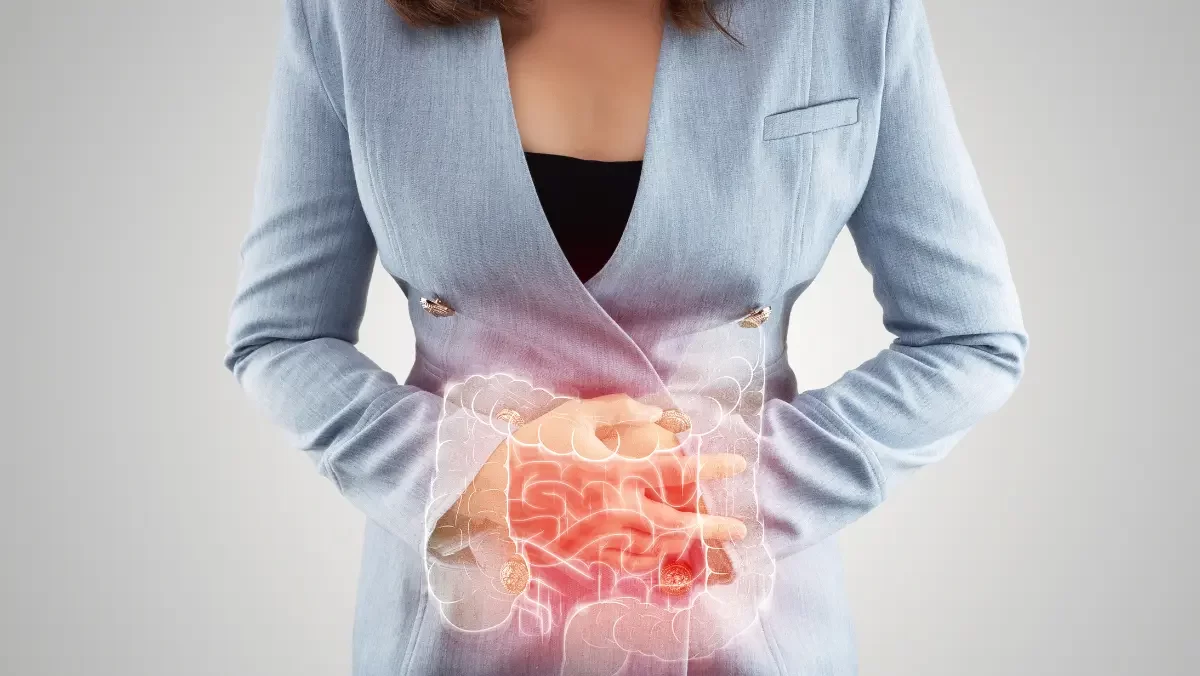Inflammatory bowel disease (IBD) refers to a group of chronic conditions that cause inflammation in the digestive tract. The two main types of IBD are Crohn’s disease and ulcerative colitis, both of which can significantly affect the quality of life. IBD is characterized by long-term inflammation that can lead to various complications such as bowel obstruction, nutritional deficiencies, and even colorectal cancer. Approximately 3 million people in the United States suffer from IBD, and its prevalence continues to rise globally. Although the exact cause remains unclear, genetic, environmental, and immune system factors are believed to play a role in the development of the disease. Early diagnosis and proper treatment are crucial for managing symptoms and improving patient outcomes.
What is Inflammatory Bowel Disease (IBD)?
Inflammatory bowel disease (IBD) refers to chronic inflammation of the gastrointestinal tract, primarily involving two conditions—Crohn’s disease and ulcerative colitis. These disorders disrupt the normal functioning of the digestive system, leading to recurring symptoms such as abdominal pain, diarrhea, and fatigue. IBD often progresses over time and can significantly impact a person’s quality of life. Early and consistent care through specialized facilities offering inflammatory bowel disease treatment in Chennai is essential for symptom control and long-term gut health.
Types of Inflammatory Bowel Diseases
Inflammatory bowel disease comprises two main types, each with distinct features:
- Crohn’s Disease: This type can affect any part of the gastrointestinal tract from the mouth to the anus but most commonly impacts the end of the small intestine (ileum). It causes inflammation that can penetrate deep into the layers of the intestinal wall. Crohn’s disease may lead to complications like strictures, fistulas, and malabsorption.
- Ulcerative Colitis: Ulcerative colitis primarily affects the colon and rectum, causing continuous inflammation of the inner lining. It typically starts in the rectum and may extend upward into the colon. Unlike Crohn’s, ulcerative colitis does not involve deeper layers of the bowel wall.
Timely and specialized care such as inflammatory bowel disease treatment in Chennai is crucial in distinguishing and managing these types. Both conditions require tailored approaches to diagnosis, treatment, and long-term care, as the clinical course varies significantly. Institutions providing IBD treatment in Chennai focus on personalized medical strategies to achieve remission and prevent relapses.
Causes of Inflammatory Bowel Diseases
The exact cause of IBD is not entirely understood, but it is believed to result from a combination of factors:
- Immune System Dysfunction: In IBD, the immune system mistakenly attacks the digestive tract, leading to chronic inflammation. This inappropriate response may be triggered by environmental factors, pathogens, or dietary changes.
- Genetic Predisposition: IBD tends to run in families, indicating a strong genetic link. Specific gene mutations have been associated with a higher risk of developing Crohn’s disease or ulcerative colitis.
- Environmental Triggers: Urban living, a Western diet rich in processed foods, smoking (in Crohn’s disease), and pollution are linked to increased IBD cases. These triggers may alter gut flora or immune responses.
- Microbial Imbalance: Dysbiosis, or an imbalance in the gut microbiota, is believed to play a crucial role. Altered bacterial communities may disrupt mucosal immunity and promote inflammation.
These contributing factors collectively shape the progression of the disease. Comprehensive inflammatory bowel diseases treatment in Chennai aims to control these elements, offering solutions such as immune-modulating therapies and lifestyle counseling to reduce inflammation and prevent flare-ups. Understanding these causes is essential for selecting the best treatment for IBD in Chennai.
Symptoms of Inflammatory Bowel Disease
IBD symptoms can vary based on the type and severity of the condition but generally include:
- Abdominal Pain and Cramping: Ongoing inflammation in the intestines leads to persistent or intermittent abdominal pain, often worsening after meals or during flares.
- Chronic Diarrhea: Frequent, loose stools—sometimes with blood or mucus—are a hallmark of IBD. It is particularly common in ulcerative colitis due to mucosal ulceration.
- Fatigue and Weakness: Chronic inflammation and nutrient loss contribute to significant fatigue. Anemia, due to intestinal bleeding, may also worsen tiredness.
- Weight Loss: Reduced appetite, malabsorption, and diarrhea can result in unintended weight loss, especially in Crohn’s disease.
- Fever and Night Sweats: In severe cases, systemic inflammation can cause fever and night sweats, often signaling a flare-up.
- Urgency to Defecate: Particularly in ulcerative colitis, patients experience a sudden and frequent urge to use the restroom.
Recognizing these symptoms early and seeking inflammatory bowel disease treatment in Chennai allows for faster intervention and better disease control. Those with frequent or worsening symptoms should explore inflammatory bowel disease treatment in Arumbakkam to avoid complications and improve quality of life.
Diagnosis of Inflammatory Bowel Disease
Accurate diagnosis of IBD involves a multi-step process:
- Medical History and Physical Examination: Doctors assess symptoms, family history, and lifestyle factors. A physical exam helps identify signs such as abdominal tenderness or weight loss.
- Blood Tests: These are used to detect signs of anemia, inflammation (like elevated C-reactive protein), or infection.
- Stool Tests: These tests help rule out bacterial or parasitic infections and detect inflammation markers such as calprotectin.
- Endoscopy and Colonoscopy: Direct visualization of the gastrointestinal tract is vital. A colonoscopy with biopsy allows for diagnosis by observing mucosal inflammation and ulcerations and obtaining tissue samples.
- Imaging Tests (CT, MRI): Imaging studies help assess deep bowel wall involvement, strictures, and complications such as abscesses or fistulas.
Proper diagnostic evaluation is crucial to guide inflammatory bowel disease treatment in Chennai. Early detection allows timely initiation of IBD treatment in Chennai, preventing disease progression and reducing hospitalizations. Facilities offering inflammatory bowel disease treatment in Arumbakkam are equipped with advanced diagnostic tools for accurate identification and staging of the disease.
Treatment of Inflammatory Bowel Disease
Treatment of IBD focuses on reducing inflammation, relieving symptoms, and achieving long-term remission:
- Aminosalicylates (5-ASA): Often used in mild to moderate ulcerative colitis, these drugs reduce inflammation in the colon lining and are taken orally or rectally.
- Corticosteroids: Prescribed during acute flare-ups, corticosteroids like prednisone are effective in controlling inflammation but are not suitable for long-term use due to side effects.
- Immunomodulators: Medications such as azathioprine and methotrexate help suppress the immune response and maintain remission.
- Biologic Therapies: Advanced drugs like anti-TNF agents (infliximab, adalimumab) or integrin blockers are highly effective in moderate to severe IBD and prevent complications.
- Surgery: In cases of severe disease, obstruction, or cancer risk, surgical removal of the affected bowel may be required.
- Nutritional Support: Diet modification and nutritional supplements are crucial, especially in Crohn’s disease, to address deficiencies and improve gut healing.
Expert centers offering inflammatory bowel disease treatment in Chennai and the best treatment for IBD in Chennai tailor treatment based on disease type, severity, and patient response. They also provide transparency on inflammatory bowel disease treatment cost in Chennai for informed decision-making.
Risk Factors of Inflammatory Bowel Disease
Several factors increase the likelihood of developing IBD:
- Genetics and Family History: Individuals with first-degree relatives diagnosed with IBD have a significantly higher risk. Genetic susceptibility plays a major role in disease development.
- Age and Gender: IBD can develop at any age but is most often diagnosed between 15 and 35 years. While both genders are affected, Crohn’s disease slightly favors women, and ulcerative colitis is more common in men.
- Smoking and Environmental Exposure: Smoking increases the risk of Crohn’s disease and worsens its outcomes. Urbanization, pollution, and lifestyle changes also contribute to the rising incidence.
- Diet and Gut Flora: A Western diet rich in fat, sugar, and processed foods disrupts gut microbiota balance, potentially triggering IBD. Antibiotic use and poor diet also affect microbial diversity.
- Stress and Autoimmunity: While stress doesn’t cause IBD directly, it can exacerbate symptoms. An overactive immune response further contributes to chronic inflammation.
Patients should consider early screening and management in high-risk cases. Facilities offering inflammatory bowel disease treatment in Chennai emphasize proactive care, especially in genetic or lifestyle-related cases. Accurate knowledge of risk factors aids in reducing complications and optimizing inflammatory bowel disease treatment cost in Chennai over time.
Conclusion
Inflammatory bowel disease is a lifelong but manageable condition with the right treatment and monitoring. Recognizing symptoms early, understanding risk factors, and receiving personalized care are key to controlling disease progression. Institutions like Prime Indian Hospital provide specialized inflammatory bowel disease treatment in Chennai, including advanced diagnostics and biologic therapies. Whether seeking inflammatory bowel disease treatment in Arumbakkam or exploring the best treatment for IBD in Chennai, expert guidance ensures better outcomes and long-term quality of life.














